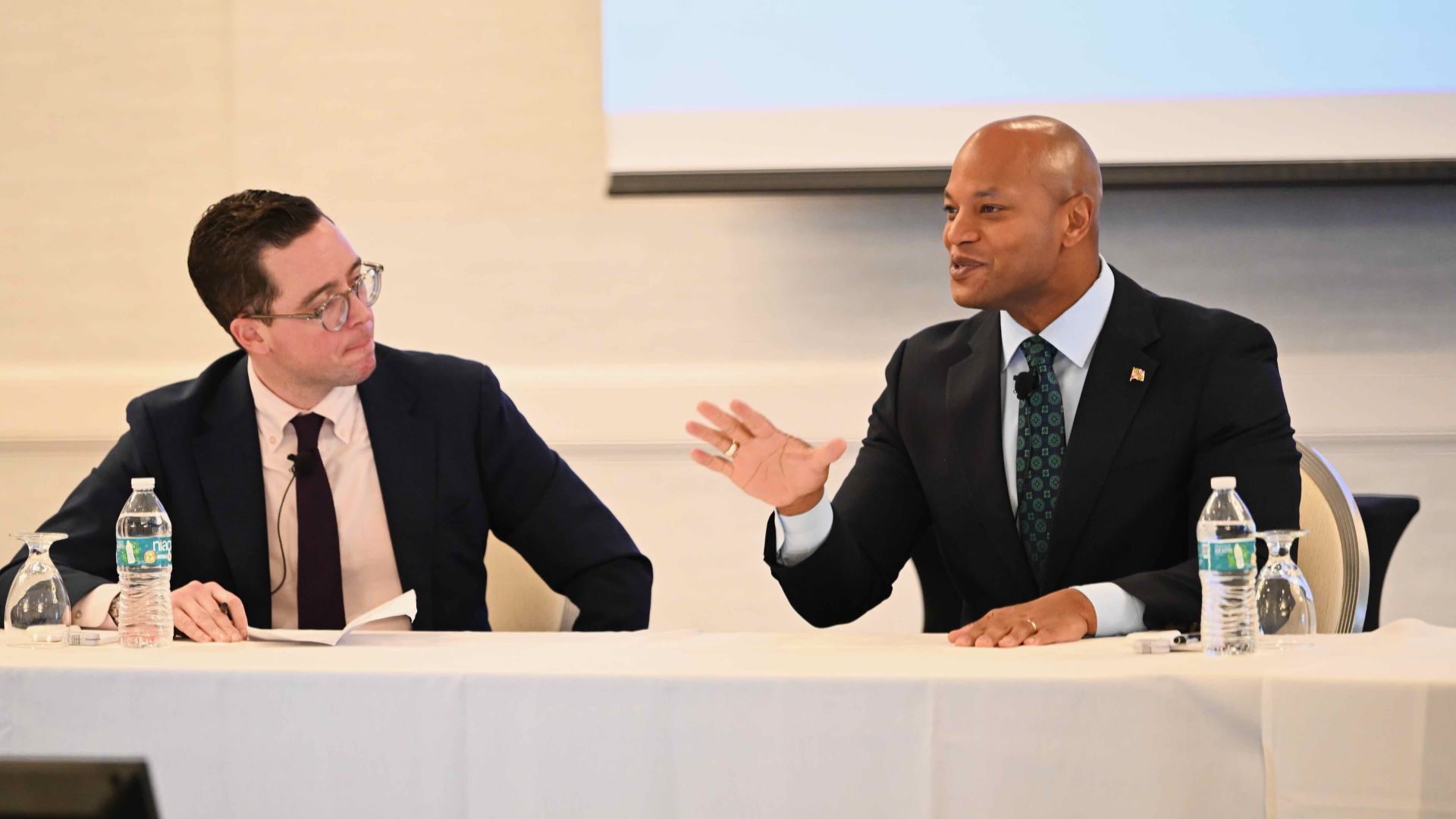
Governors across the country are navigating rapidly evolving labor force trends – worker shortages in nearly every sector of the economy, skills gaps created by new technologies, and increased cost of higher education. While labor shortages can provide opportunities for individuals to enter the workforce or transition to new careers, those who face barriers to workforce participation may not benefit if their skills do not align with employers’ needs. A lack of skilled workers can also present obstacles to progress on Governors’ wide-ranging policy priorities, such as completing infrastructure projects, bolstering the teacher talent pipeline, and expanding the capacity of public health systems. As Governors explore all the tools at their disposal to address these challenges, state and national service programs offer a promising strategy for states to address workforce shortages and barriers to workforce participation while addressing Governors’ policy priorities through “service-to-career pathways.”
Intentionally designed service-to-career pathways embed career development opportunities into a term of service, building in career exploration, coaching, work-based learning, skills training, and credential attainment as part of the service experience. Policy that supports on- and off-ramps between service programs, training and education programs, and employment can open new opportunities to upskill and reskill the workforce to adapt to the changing economy and increase access to family-sustaining careers.
To support Governors and state policymakers in developing and implementing a vision for service-to-career pathways, the National Governors Association Center for Best Practice (NGA Center) has partnered with the Schultz Family Foundation and the Annie E. Casey Foundation to increase coordination among state partners to meet community needs while providing career development opportunities to service members, particularly for young adults from underrepresented and diverse communities.
For more information on the NGA Center’s work to support Governors in advancing service-to-career pathways, please contact the Workforce Development and Economic Policy team.
“Our goal is to provide service opportunities that will meet pressing state needs while preparing young people for post-secondary education/training.”
Utah Governor Spencer Cox
“By calling Marylanders to serve – and serve together – we will ensure our citizens develop skills to meet society’s needs.”
Maryland Governor Wes Moore
Resources
Service-to-Career Pathways Policy Academy and Community of Practice
In January 2025, the NGA Center launched a Service-to-Career Pathways Policy Academy with state teams from Connecticut, Maine, Minnesota, Nevada, Oregon, and Vermont have been selected to receive grant funding and customized technical assistance to advance their Governor’s service-to-career pathway policy goals. Throughout the duration of the Policy Academy, the six state teams will develop an action plan to advance service-to-career pathways in key sectors in the state, especially for young people, including those from historically underrepresented or marginalized communities. Facilitated peer learning opportunities and assistance from national subject matter experts will also help to inform their action plans.






In addition to the Policy Academy, the NGA Center is offering states the opportunity to join a Service-to-Career Pathways Community of Practice. States who join the Community of Practice will have access to select resources developed for the Policy Academy, participate in a bimonthly webinar series, and join in facilitated peer learning opportunities.
Service-to-Career Pathways Advisory Board
The Service-to-Career Pathways Advisory Board provides strategic guidance to the NGA Center on the development and delivery of programming and technical assistance to states in advancing service-to-career pathways. The Advisory Board is co-chaired by Utah Governor Spencer Cox and Maryland Governor Wes Moore will co-chair the Advisory Board and comprises a group of executives and stakeholders with a commitment to ensuring that service programs are a key tool for providing youth and young adults with career development opportunities.
Service as a Pathway to Economic Opportunity: A Roadmap for Governors
This roadmap highlights actionable strategies for Governors and state policymakers to meet critical state needs while expanding access to economic opportunity by leveraging service programs as career development opportunities, especially for youth from underserved communities. The roadmap lays out five key elements with related policy options for Governors to consider as they develop and execute a vision for service-to-career pathways in their states:
- Survey the landscape and set a statewide vision
- Champion service-to-career pathways
- Align service, workforce development, and other state partners
- Develop a governance and funding strategy
- Engage public, private, and philanthropic stakeholders
This menu of policy options is intended to provide adaptable solutions that meet states’ unique conditions and needs. Underlying these policy options is an emphasis on interagency coordination and public-private partnership to provide a seamless, flexible transition between service and careers. The roadmap also features case studies on innovative state models and emerging best practices for aligning state and national service programs with career pathways. These examples illustrate the opportunities and successes that are possible when public, private, and philanthropic partners are aligned with the Governor’s vision for service-to-career pathways.
NGA Convenes Ten States to Explore Service as a Pathway to Economic Opportunity

In January 2024, the National Governor Association’s Center for Best Practices brought together 10 interagency state teams comprised of Governors’ advisors, state workforce development system leaders, and state service commission leaders to explore service as a pathway to economic opportunity. State teams heard from peers across the country and national experts on promising practices to develop service-to-career pathways and workshop their state’s unique priorities and next steps for action. Maryland Governor Wes Moore joined to share his personal service experience and how that has shaped his perspective on the value of service in giving purpose and a promising career pathway to young people.
Schultz Family Foundation and National Governors Association Partner to Expand State-Led Innovations in National Service
The Schultz Family Foundation and the National Governors Association Center for Best Practices announced a partnership to support Governors and state leaders in designing and expanding innovative civilian national service programs to address critical state needs while also enabling those who serve to use the experience to launch their careers in a meaningful way. Through this project, the NGA Center aims to improve awareness, connection, and partnership across state entities, including Governors’ offices, state workforce development leaders, state service commission leaders, and community-based organizations, to tap into the power of national service and volunteering to meet the needs of their communities and to enhance the career potential of service members. The partnership aims to help states recruit more diverse service corps and support those who serve in acquiring skills to land a good job.












